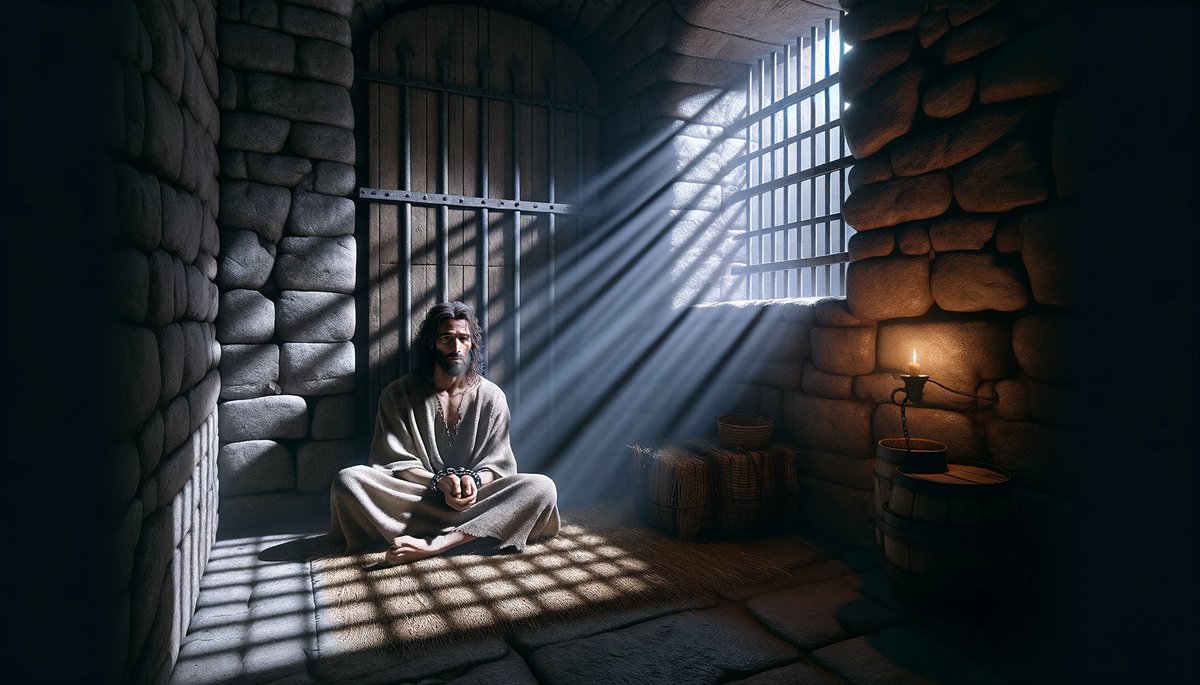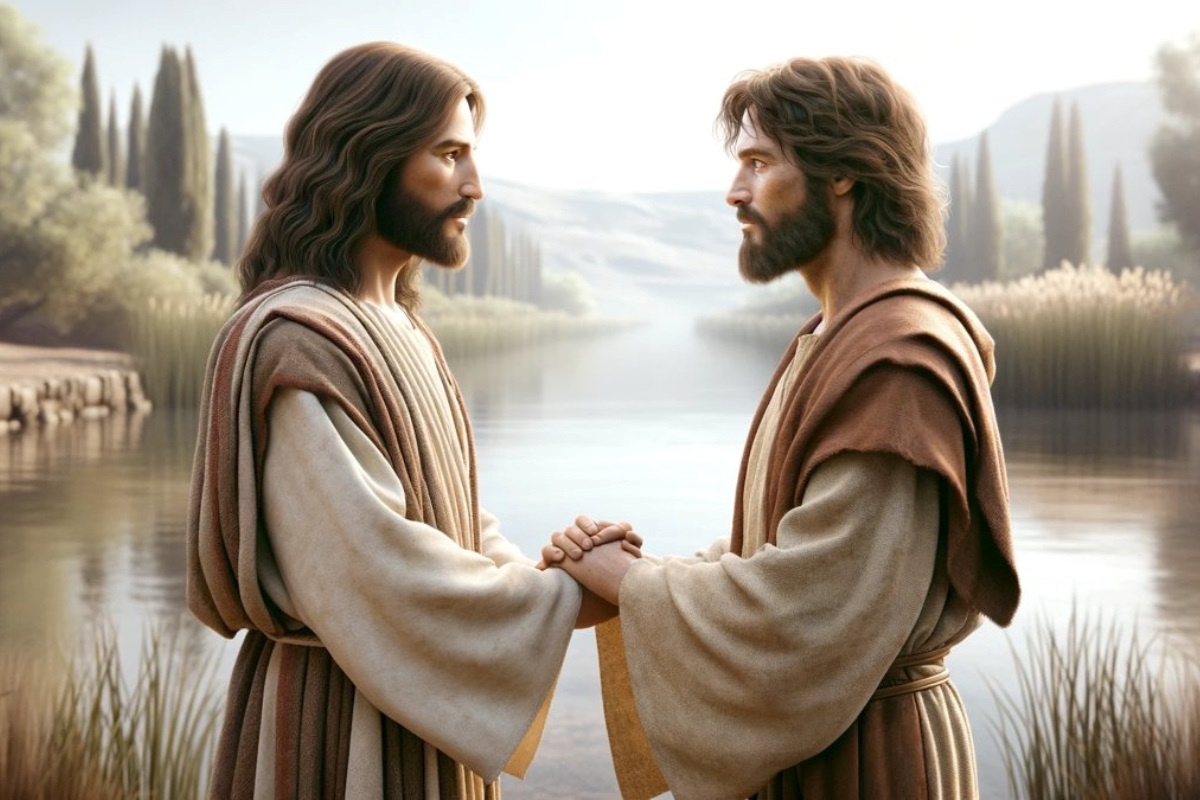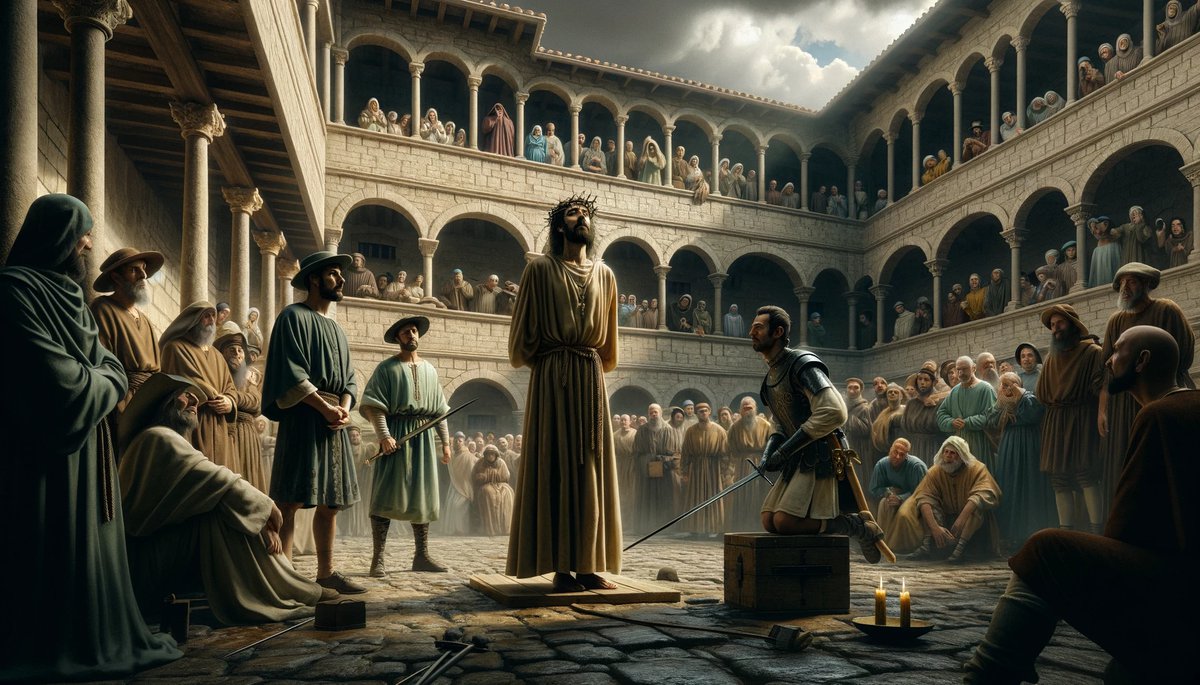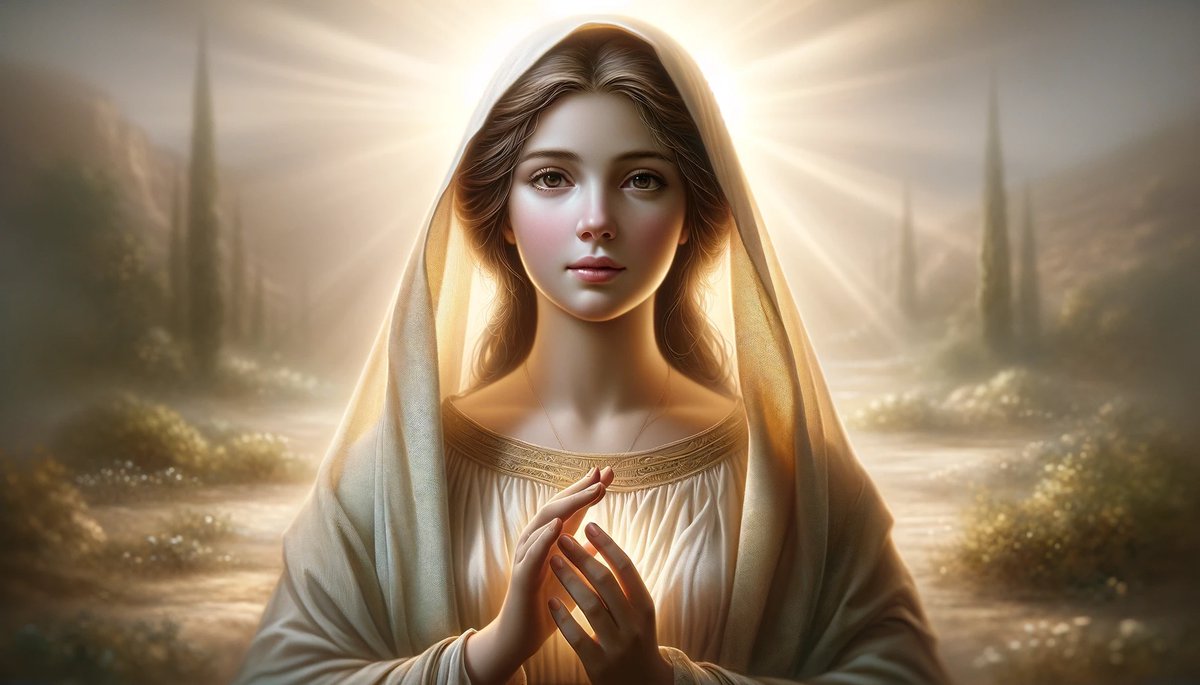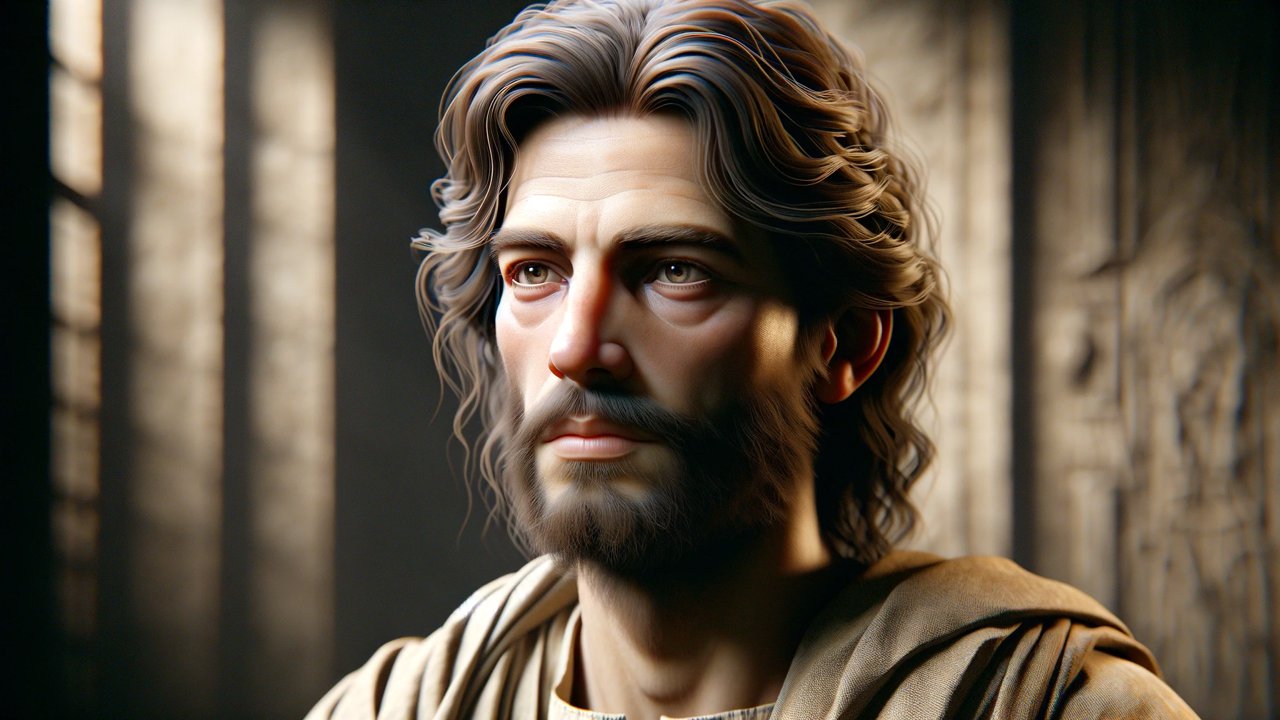Home>Christian Videos>Bible Stories>When Was John The Baptist’s Birthday
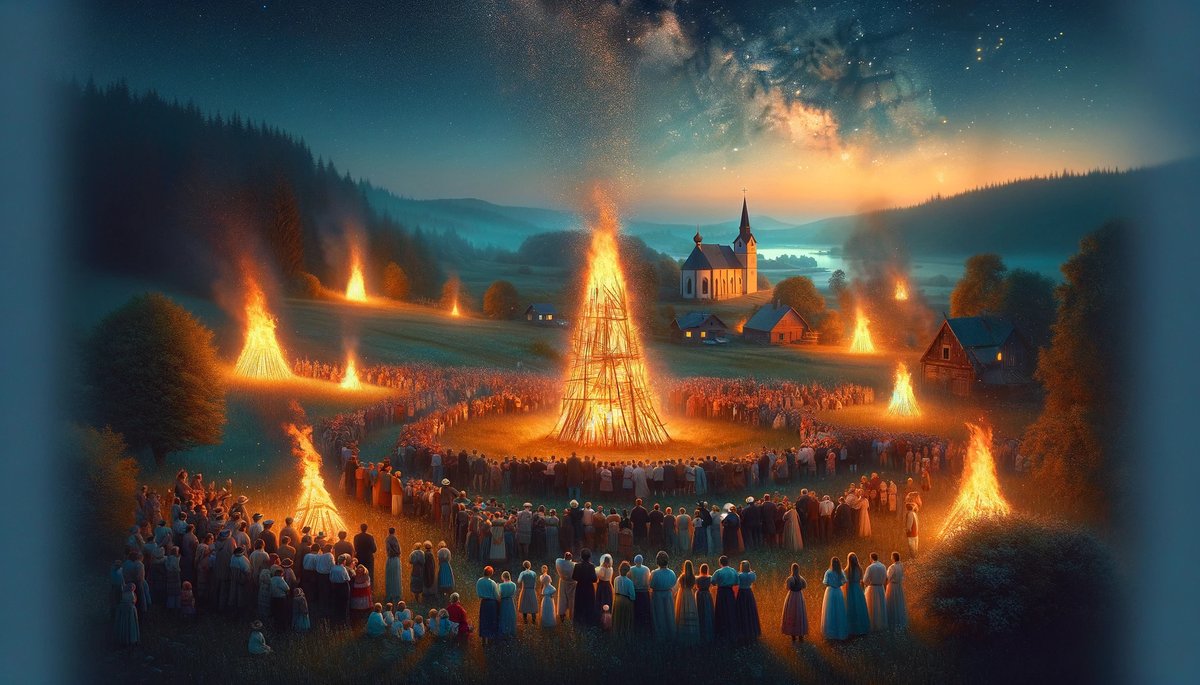

Bible Stories
When Was John The Baptist’s Birthday
Published: March 6, 2024
Ericka Andersen, an editor at Christian.net, expertly merges digital strategy with content creation, focusing on faith and societal issues. Her communication skills enhance the platform's engaging narratives, fostering meaningful dialogue on belief's impact on society.
Discover the biblical account of John the Baptist's birth and the significance of his life in the context of Bible stories. Explore the historical and religious context of this important figure.
(Many of the links in this article redirect to a specific reviewed product. Your purchase of these products through affiliate links helps to generate commission for Christian.net, at no extra cost. Learn more)
Table of Contents
Introduction
When was John the Baptist's birthday? This question has intrigued scholars and religious enthusiasts for centuries. The birth of John the Baptist is a significant event in Christian history, as he is known for his role in baptizing Jesus Christ. Exploring the historical context and the various theories surrounding John the Baptist's birthday can provide valuable insights into the religious and cultural significance of this figure. In this article, we will delve into the historical context of John the Baptist, the debate surrounding his birthday, the traditional date of his birth, and alternative theories that have emerged over time.
Read more: When Is The Real Birthday Of Jesus Christ
The Historical Context of John the Baptist
John the Baptist, also known as John the Baptizer, was a prominent figure in the religious landscape of the 1st century AD. He is recognized as a prophet in Christianity and Islam and is revered for his role in preparing the way for the coming of Jesus Christ. John the Baptist's significance is deeply rooted in the historical and cultural context of ancient Judea. He was born to Zechariah, a priest of the order of Abijah, and his wife Elizabeth, who was a relative of Mary, the mother of Jesus. According to the Gospel of Luke, John was born to elderly parents who had been barren, and his miraculous birth was foretold by the angel Gabriel. John's birth was seen as a fulfillment of divine prophecy, and his upbringing in the wilderness reflected the ascetic traditions of the Essenes, a Jewish sect known for its strict adherence to religious purity and moral conduct.
John the Baptist's ministry was characterized by his preaching of repentance and baptism for the forgiveness of sins. He attracted a following of devout believers and gained a reputation as a charismatic and outspoken prophet. His confrontations with religious authorities and his fearless condemnation of moral corruption made him a polarizing figure in Judean society. John's baptism of Jesus marked a pivotal moment in his life and solidified his role as the forerunner of the Messiah. His proclamation, "Behold, the Lamb of God, who takes away the sin of the world!" is a testament to his recognition of Jesus as the long-awaited savior.
The historical context of John the Baptist's life is intricately linked to the political and religious dynamics of ancient Judea. His ministry unfolded during a time of Roman occupation and Jewish anticipation of a messianic deliverer. John's call for repentance and his announcement of the imminent arrival of the kingdom of God resonated with the hopes and anxieties of the Jewish people. His fearless critique of social injustices and moral decadence challenged the status quo and stirred the collective consciousness of his contemporaries. Ultimately, John the Baptist's historical context sheds light on the complex interplay of religious, political, and social forces that shaped the religious landscape of 1st century Judea.
The Debate Surrounding John the Baptist's Birthday
The debate surrounding John the Baptist's birthday centers on the lack of explicit historical records or biblical references that provide a definitive date for his birth. Unlike the birth of Jesus Christ, which is celebrated on December 25th in many Christian traditions, the exact date of John the Baptist's birth remains a subject of scholarly inquiry and speculation. The absence of a specific date in the New Testament has led to diverse interpretations and theories regarding when John the Baptist was born. This ambiguity has given rise to a rich tapestry of cultural, religious, and historical perspectives on the timing of his birth, contributing to the ongoing debate among scholars and religious communities.
The primary source for the narrative of John the Baptist's birth is the Gospel of Luke, which recounts the miraculous conception of John to Zechariah and Elizabeth, his elderly parents. The angel Gabriel announces John's impending birth to Zechariah while he is performing his priestly duties in the temple. The account of John's birth is intertwined with the annunciation of Jesus' birth to Mary, creating a parallelism that underscores the interconnectedness of their destinies. However, the Gospel of Luke does not provide a specific date for John the Baptist's birth, leaving room for interpretation and speculation.
The debate surrounding John the Baptist's birthday has also been influenced by the interplay of historical, cultural, and religious factors. Different traditions and religious calendars have proposed varying dates for the commemoration of John the Baptist's birth, reflecting the diverse ways in which his legacy is honored and celebrated across different Christian denominations and cultures. The absence of a universally recognized date has led to a spectrum of opinions and hypotheses, each offering its own rationale and historical context for the proposed timing of John the Baptist's birthday.
The ambiguity surrounding John the Baptist's birthday has sparked scholarly inquiry into ancient historical sources, such as the writings of Josephus and the early Christian church fathers, in an attempt to glean insights into the possible timeframe of John's birth. Additionally, archaeological discoveries and the study of ancient religious practices have contributed to the ongoing discourse on the historical and cultural milieu in which John the Baptist lived, shedding light on the broader context within which his birth may have occurred.
The debate surrounding John the Baptist's birthday is a testament to the enduring fascination with this enigmatic figure and the quest to unravel the mysteries of his life and legacy. As scholars and religious communities continue to engage in dialogue and research, the ongoing debate serves as a reminder of the profound impact of John the Baptist's story and the enduring quest to understand the historical and religious significance of his birth.
The Traditional Date of John the Baptist's Birthday
The traditional date of John the Baptist's birthday is closely associated with the feast day of his nativity, which is celebrated on June 24th in the liturgical calendar of the Western Christian Church. This date, known as the Feast of the Nativity of St. John the Baptist, holds significant religious and cultural importance in many Christian traditions. The choice of June 24th as the traditional date of John the Baptist's birthday is rooted in historical and liturgical considerations that have shaped the commemoration of this revered figure.
The selection of June 24th for the feast of John the Baptist's nativity is linked to the proximity of the summer solstice, a celestial event that carries symbolic significance in various cultural and religious traditions. In the Christian context, the summer solstice represents the gradual lengthening of daylight after the shortest day of the year, symbolizing the increasing presence of light in the world. This symbolism is intertwined with the biblical portrayal of John the Baptist as the "voice crying out in the wilderness" to prepare the way for the coming of the light of the world, Jesus Christ. The juxtaposition of the summer solstice with the feast of John the Baptist's birth underscores the thematic resonance of light and illumination in the religious narrative surrounding his life and ministry.
The traditional date of June 24th for the celebration of John the Baptist's nativity also aligns with the Gospel of Luke's account of the annunciation of John's birth to his mother, Elizabeth. According to the biblical narrative, the angel Gabriel appears to Zechariah, John's father, while he is serving as a priest in the temple. The angel informs Zechariah that his wife, Elizabeth, will bear a son, who will be named John. The timing of this divine announcement, as depicted in the Gospel of Luke, has been historically associated with the summer solstice, providing a contextual basis for the selection of June 24th as the traditional date of John the Baptist's birthday.
The commemoration of John the Baptist's nativity on June 24th has also been influenced by the liturgical calendar and the establishment of feast days within the Christian tradition. The placement of the feast of John the Baptist's birth on June 24th positions it within the broader framework of the liturgical year, allowing for thematic connections with other significant events in the Christian calendar. This deliberate placement underscores the interconnectedness of John the Baptist's story with the overarching narrative of salvation history, emphasizing his role as the herald of the Messiah and the fulfillment of prophetic promises.
The traditional date of John the Baptist's birthday on June 24th has thus become a focal point for religious observance and cultural festivities in many Christian communities. The celebration of this feast day serves as a testament to the enduring legacy of John the Baptist and the enduring significance of his role in preparing the way for the coming of Jesus Christ. The traditional date of June 24th stands as a symbolic marker of the birth of a figure whose life and ministry continue to inspire devotion and reflection within the Christian faith.
Alternative Theories on John the Baptist's Birthday
-
The Feast of Tabernacles Connection: Some scholars and religious traditions propose an alternative theory regarding the timing of John the Baptist's birth, suggesting a connection to the Jewish festival of Sukkot, also known as the Feast of Tabernacles. This theory posits that John the Baptist's birth may have occurred during the festival of Sukkot, which typically falls in September or October. Proponents of this theory point to the symbolic and theological resonances between the themes of the Feast of Tabernacles and the prophetic ministry of John the Baptist. The festival of Sukkot is associated with themes of harvest, ingathering, and the dwelling of God among His people, reflecting the anticipation of divine presence and fulfillment. This alignment with the themes of spiritual harvest and divine manifestation parallels the message of repentance and preparation preached by John the Baptist, leading some to consider the possibility of his birth coinciding with the festival of Sukkot.
-
The Passover Connection: Another alternative theory proposes a connection between John the Baptist's birth and the Jewish festival of Passover, which occurs in the spring. This theory suggests that John the Baptist may have been born during the time of Passover, aligning his birth with the commemoration of Israel's liberation from slavery in Egypt. Proponents of this theory highlight the symbolic significance of Passover as a time of deliverance and redemption, resonating with the themes of repentance and spiritual liberation emphasized in John the Baptist's ministry. The association with Passover underscores the theological parallels between the prophetic message of John the Baptist and the redemptive motifs embedded in the observance of the festival, prompting consideration of the spring season as a potential timeframe for his birth.
-
The Priestly Calendar Hypothesis: Some scholars have explored the possibility of John the Baptist's birth being linked to the priestly calendar and the rotation of priestly divisions as outlined in the Hebrew Scriptures. According to this hypothesis, John the Baptist's father, Zechariah, belonged to the priestly division of Abijah, which was assigned specific periods of temple service according to the ancient priestly calendar. By extrapolating from the details provided in the Gospel of Luke regarding the timing of Zechariah's priestly duties, proponents of this theory have sought to establish a correlation between the priestly division of Abijah and the potential timeframe for John the Baptist's birth. This alternative approach draws upon the historical and religious context of the priestly calendar to speculate on the timing of John the Baptist's nativity, offering a distinct perspective on the possible date of his birth within the framework of ancient Jewish religious practices.
-
The Qumran Community Influence: Another alternative theory posits a connection between John the Baptist's birth and the Qumran community, an ascetic Jewish sect associated with the Dead Sea Scrolls. Proponents of this theory suggest that John the Baptist may have been influenced by the teachings and practices of the Qumran community, and his birth may have been situated within the context of their communal calendar and religious observances. The Qumran community's emphasis on ritual purity, communal living, and eschatological expectations has led some scholars to consider the potential impact of this milieu on the formation of John the Baptist's ministry and the timing of his birth. This alternative perspective seeks to situate John the Baptist within the broader landscape of Jewish sectarian movements of the time, offering insights into the possible influences and historical backdrop that may have shaped his early life and prophetic vocation.
These alternative theories on John the Baptist's birthday reflect the diverse and nuanced approaches taken by scholars and religious traditions to unravel the mysteries surrounding the timing of his birth. While the debate continues, these alternative perspectives contribute to the rich tapestry of interpretations and speculations that surround the historical and religious significance of John the Baptist's life and legacy.
Read more: When Did John The Baptist Live
Conclusion
The quest to determine the exact date of John the Baptist's birthday continues to captivate scholars, theologians, and religious enthusiasts. The historical context of John the Baptist's life, marked by its intertwining with the political, religious, and social dynamics of ancient Judea, provides a backdrop for the ongoing debate surrounding his birth. While the traditional date of June 24th holds significance in many Christian traditions, alternative theories rooted in historical, cultural, and religious considerations offer diverse perspectives on the possible timing of John the Baptist's nativity. The absence of explicit historical records or biblical references specifying his birth date has fueled a spectrum of opinions and hypotheses, each contributing to the multifaceted discourse on this enigmatic figure.
As the debate surrounding John the Baptist's birthday persists, the enduring fascination with his life and legacy serves as a testament to the profound impact of his role as the herald of the Messiah. Whether commemorated on June 24th or considered within alternative frameworks, the quest to unravel the mysteries of John the Baptist's birth underscores the enduring significance of his prophetic ministry and his enduring influence on religious thought and devotion. The ongoing dialogue and research surrounding his birthday reflect the enduring quest to understand the historical and religious significance of this revered figure within the Christian faith and beyond.
